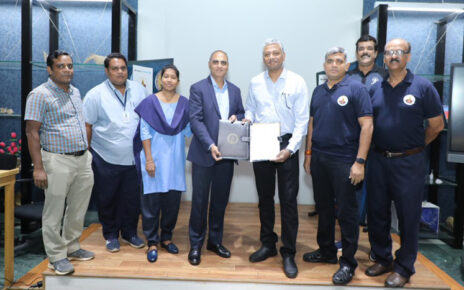The Road Safety Network (RSN), a coalition of civil society organisations working to curb road crash fatalities in India, hosted a virtual dialogue titled “Road Safety: Exploring Systemic Gaps and Policy Solutions” to address the country’s rising road deaths and highlight the urgent need for evidence-based, coordinated interventions.

The session also marked the launch of RSN’s new whitepaper, “Solving India’s Road Safety Crisis with Data-Backed, Scientific, and Evidence-Based Solutions,” which lays out a comprehensive roadmap for reducing fatalities by 50% by 2030. The document emphasises data-led governance, safer road design, and stronger institutional accountability as the pillars of meaningful reform.
The dialogue brought together leading experts, including Prof. (Dr.) Bhargab Maitra of IIT Kharagpur, Prof. (Dr.) Sikdar, Advisor to the Indian Roads Congress, road safety expert Ravishankar from CUMTA, Dr. Ganapathy Malarvazhi of Anna University, Ranjit Gadgil of Parisar, and Dr. Ashwini Bagga from the Government of Rajasthan.
According to data from the Ministry of Road Transport and Highways (MoRTH), India recorded 4,80,583 road crashes and 1,72,890 deaths in 2023. Despite owning only 1% of the world’s vehicles, the country accounts for nearly 11% of global road fatalities. Experts at the dialogue stressed that these deaths arise from predictable, preventable causes rooted in weak enforcement, unsafe road design, speeding, and the absence of coordinated governance.
Prof. (Dr.) Sikdar said that India must adopt the Safe System Approach in full to achieve targeted reductions in fatalities. “Safety of vulnerable road users requires the highest commitment from policymakers, planners, and engineers. Facilities created for pedestrians and cyclists must be protected from misuse and encroachment,” he noted.
Prof. (Dr.) Bhargab Maitra highlighted the need to adapt Indian road design to its real-world context. “We must recognise the actual conditions of Indian roads and road users. Speed management must be given top priority if we want to reduce fatalities in a time-bound manner,” he said.
Road safety expert Mr. Ravishankar from CUMTA called for better accident data, stronger enforcement of helmet laws, and strict accountability for road-owning agencies. “Improving accident data quality, enforcing helmet use under the Motor Vehicles Act, and ensuring compliance with IRC safety engineering standards must be immediate priorities,” he said.
RSN’s whitepaper identifies five urgent priorities, including the launch of a National Road Safety Mission (NRSM) to coordinate efforts across ministries and states, adopting scientific speed management norms, and creating legally binding State Action Plans with measurable targets.
A major focus of the whitepaper is protecting vulnerable road users — pedestrians, cyclists and two-wheeler riders — who account for nearly 68 percent of all road deaths. It calls for safer street design, better lighting, enforcement of helmet and seat belt laws, and an upgrade of India’s crash data systems through real-time platforms like e-DAR.
Experts pointed out that road crashes cost India 3–5 percent of its GDP each year, disproportionately affecting low-income families. As the country observes the World Day of Remembrance for Road Traffic Victims on November 16, RSN urged policymakers to elevate road safety as a national development priority rooted in data, scientific design, and strict accountability.




